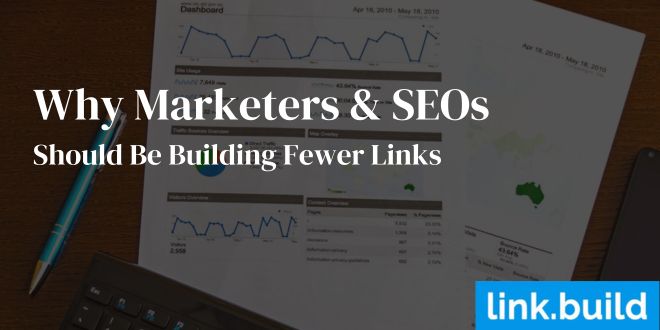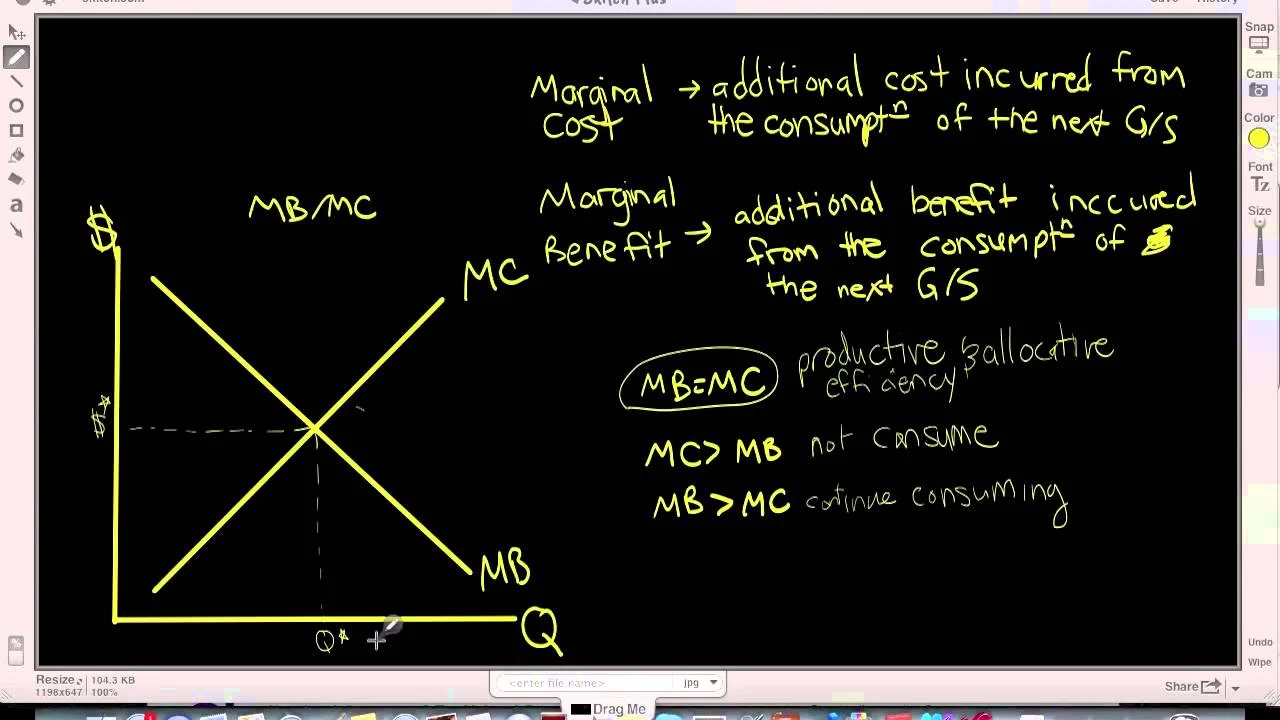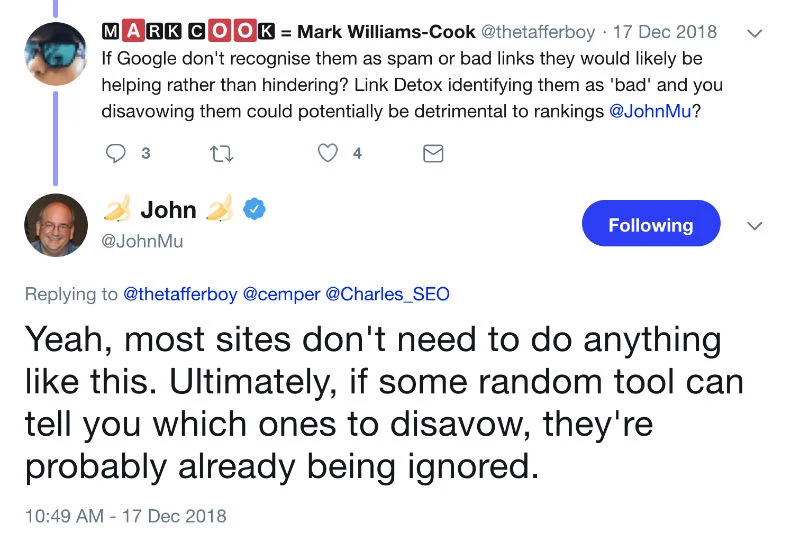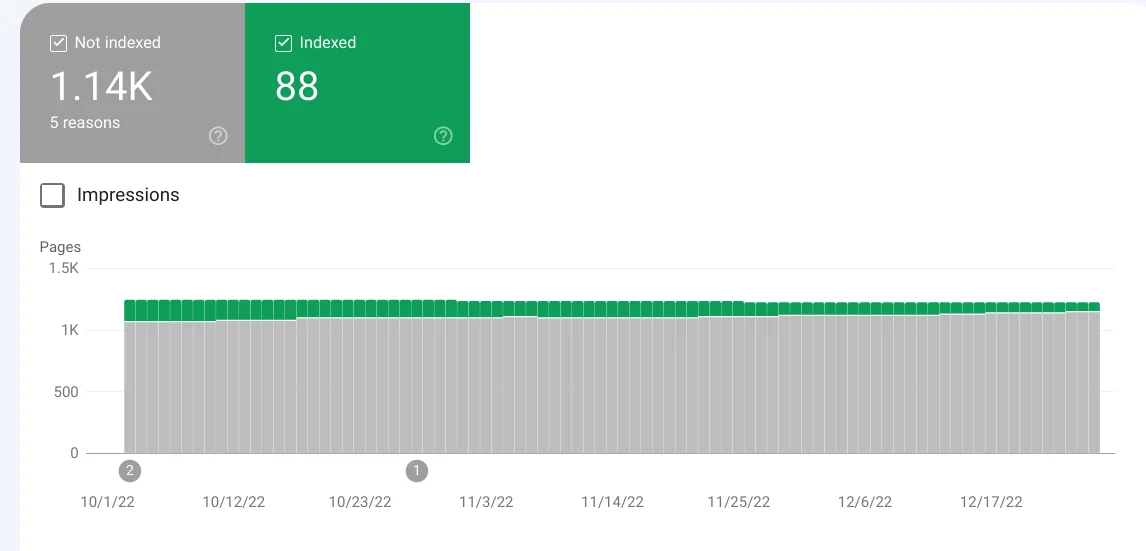Why Marketers & SEOs Should Be Building Fewer Links

The very title of this post smacks in the face of what we do.
But the reality is, most marketers should be building fewer links pointing to their website(s), not more.
Yes, links still matter as a correlated site's rankings factor in Google and other search engines, but their impact is quickly waning.
As it wanes, the difficulty will be this:
You will fail to know which links are helping, which are neutral and which are hurting your efforts to rank in organic search.
Backlink audits can help, but there are too many other ranking factors to know for certain if a particular link was detrimental to your SEO.
Without a true understanding of this fact, you will need to be more vigilant, picky and discerning when it comes to how you perform outreach campaigns and who you hire to perform your link building services.
And while we do and likely will remain advocates for link acquisition, the who, what, when, where and why of how you executive on your website link building campaigns has changed quickly.
The Marginal Cost vs. Marginal Benefit of Link Building
Quality link building strategy can be extremely expensive.
The only marginal benefit of continuing link building after a site has obtained top SERP (search engine results pages) rankings for a given term is as a defense against new-comers or rapid upstarts in sniping top positions.
Otherwise, the financial rational decision in all cases is to build internal links until the marginal cost and the marginal benefit intersect:

The truth is that once you obtain top rankings, the marginal benefit of each subsequently acquired link declines rapidly, while the marginal cost remains the same.
This means that the ROI of your link building strategies quickly declines once you "make it" in your efforts to rank for short tail, commercial terms.
Most sites have <30 pages and phrases that they care about for ranking purposes.
Mature sites oftentimes will rank for more of their desired "money terms" than sites that are either brand new or chasing short tail terms with high search volume and high value.
In nearly every case, webmasters and site owners really only care for a handful of short-tail phrases in their efforts to rank in online, organic search.
Be VERY Picky With Link Placements and Link Acquisitions
When you are pickier with your link placements, you will naturally acquire fewer links, not more.
And gauging backlink quality should not ONLY be done through third party tool analysis like Moz Domain Authority (DA) or Ahrefs Domain Rating (DR).
There are other factors to consider when being picky in obtaining a link.
Consider:
- Organic traffic metrics
- A publisher site content review (is the content generic or does it look like a link farm?)
- Website niche relevance
- IP lookup for PBN (private blog network) status
- Archive.org look-up to check for repurposing or PBN status
- Are the links dofollow, nofollow or sponsored
- Do they charge for link placement?
We cover the publisher review process in our guest posting services review post here.
Lower Quality Links Will Come Without Effort
Even without effort, your site will unavoidably acquire all the links that you may not want.
Spam is the way of the internet.
Search engines will continue to fight it, even on your behalf as spam is now more easily determined algorithmically.
This is at least one of the reasons, search engines claim disavowing links is no longer necessary:

As Content is Deindexed, Links Will Die
Google is quickly deindexing pages out of the SERPs.
The web's current deindexation phenomenon is different than the link rot of yesteryear.

Poor, thin and AI-created (often created for doorway pages) are getting more quickly recognized and deindexed from Google.[/caption]
And, depending on how much time, effort and cost it took to acquire now dead or deindexed links, you may have just flushed a great deal of your hard-earned money down the drain.
In fact, if the quality of your links is poor enough, your attempts at spammy link building tactics may have caused more harm than good for your would-be SEO value or efforts.
If A Link is Easy to Acquire, It Has Little Value
And, if it has little value, then why waste the time acquiring it.
Value is borne out of scarcity and if you are focused on acquiring few links, do so with the scarcity mindset.
If it's easy for you to acquire and/or pay for a link placement, then it's just as easy for your competitor to do the same.
Search engines know this and the natural links, if they had a boosting value at the outset, are more likely to slide in relevance over time.
This is why sites with low quality da links are more likely to see major rankings fluctuations and drops during Google updates than sites focused on acquiring links that are more difficult to attain.
In other words, you have an unsustainable link building campaign or strategy.
But, Don't Stop Building Links
Just because you should be building fewer links, not more, it does not mean you should stop building links altogether.
Quite to the contrary. You should always have a keen eye toward acquiring new, quality backlinks for your website.
And, just because the marginal cost vs. marginal benefit quickly gains a negative ROI, doesn't mean your competition sees it that way.
Without consistent efforts to source or building high quality links or relevant links from new and relevant backlink sources, both your short and long-tail rankings are likely to decline over the long term.
Top rankings sites should be performing manual link building on a declining scale over time, but never stop doing so as this is tantamount to giving in to competitors.
In short conclusion, new(er) sites may need to engage in more rapid link building to play catch-up to reach the scale of their competitors, while aged, high-authority sites should discerningly build links from high-quality sources as a defensive moat to ward off the up-and-comers looking to steal their lunch.


.svg)

.jpg)
.jpg)
.jpg)